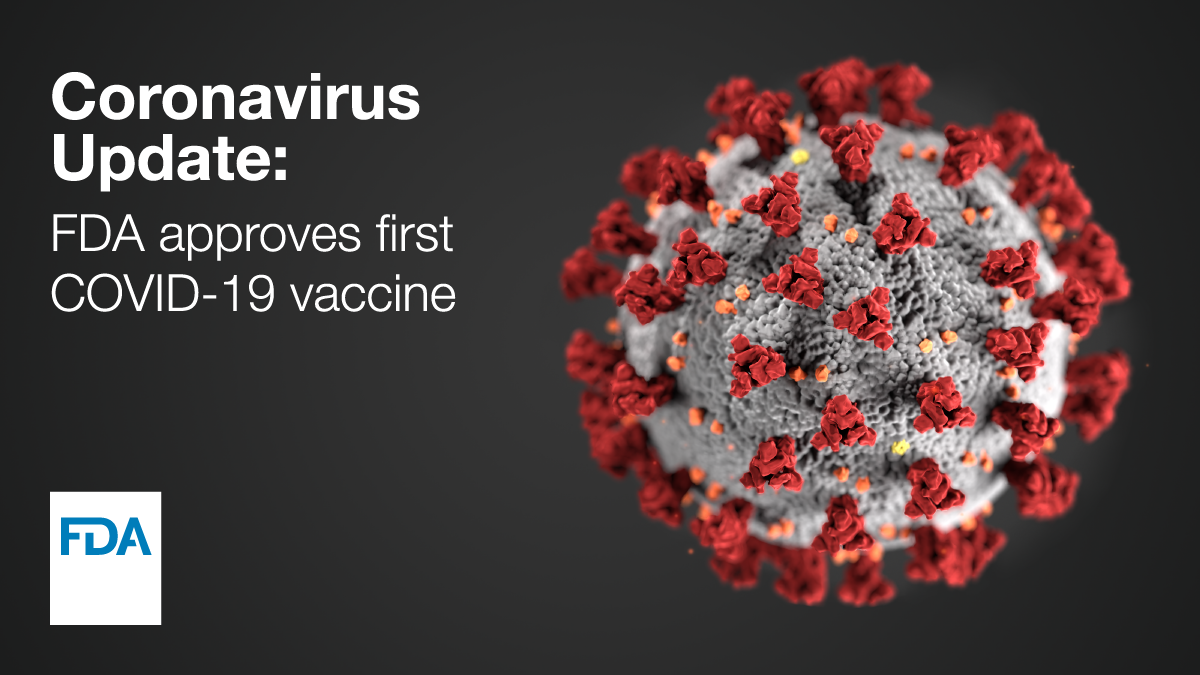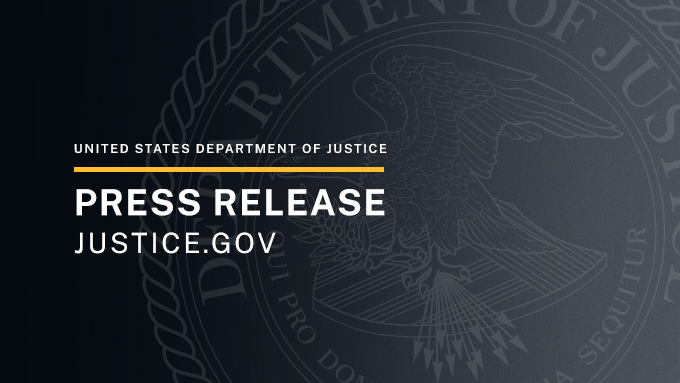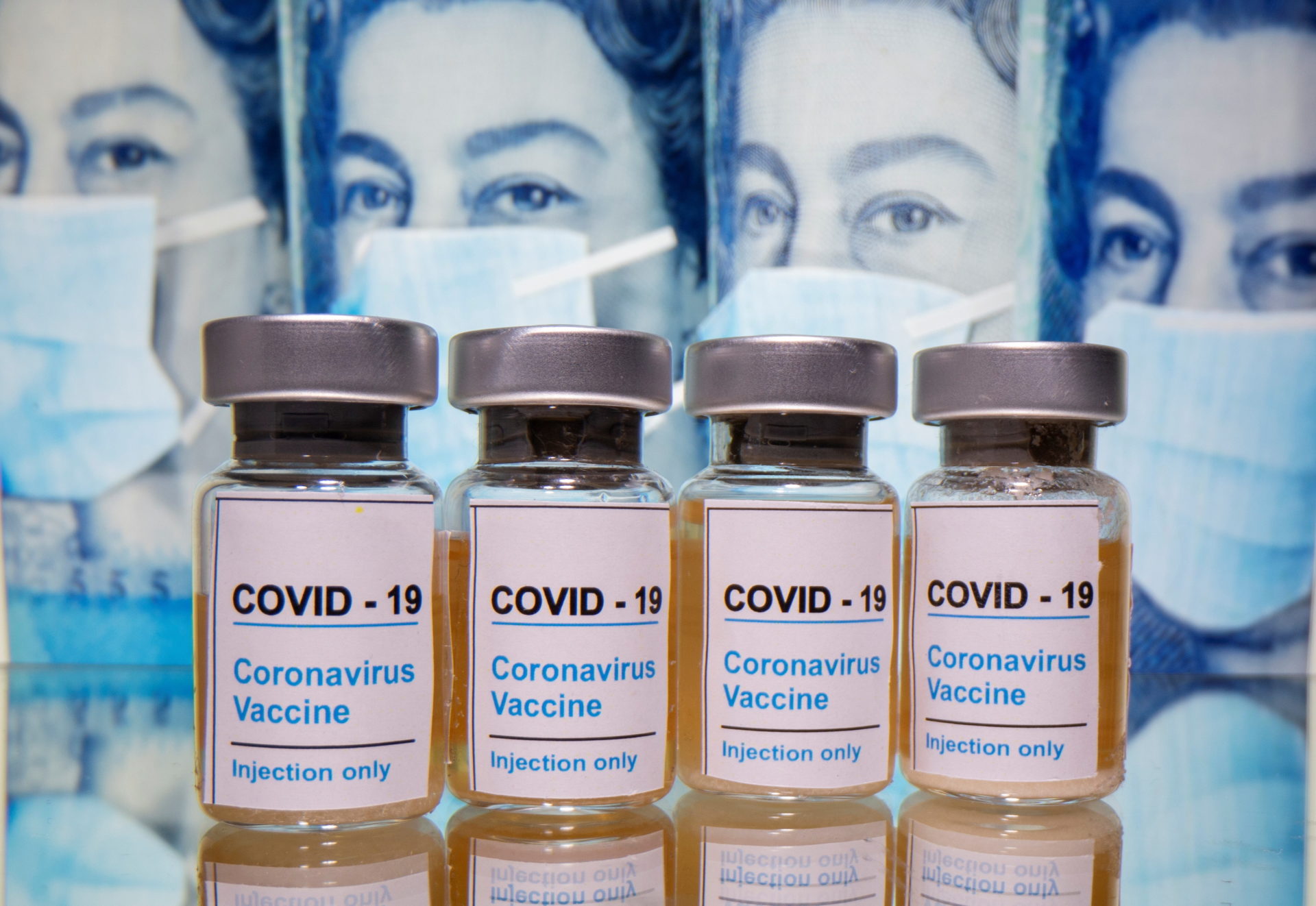fwafwow
WKR
- Joined
- Apr 8, 2018
- Messages
- 6,055
Isn’t being a skeptic a keystone of science?Clearly it doesn't cost anyone anything to be a skeptic and conspiracy theorist.
Follow along with the video below to see how to install our site as a web app on your home screen.
Note: This feature may not be available in some browsers.
Isn’t being a skeptic a keystone of science?Clearly it doesn't cost anyone anything to be a skeptic and conspiracy theorist.
Billions in fines for fraud with medicine and treatment and they want you to get an untested vaccine with no long term data AND big pharma is off the hook for liability. Let’s not forget that you’re still getting a vaxx produced under the EUA and not one dose has been produced as the dose that was approved by the FDA. Still no liability on their end and they will do this forever as long as they aren’t liable.
They need 75 years to go through the records and data if someone does a FOIA on this stuff but somehow went through all the information to approve the woke poke in just a few months. Seems legit. Probably used the same “fact checkers” sitting in a bean bag chair with Cheetos stained underwear that social media and the news uses.
Remember, Chantix helps you stop smoking. Now all these years later they admit it gives you cancer and pulled it. They had been chalking it up to former smokers getting cancer because they smoked.

I have not yet spent any time reviewing VAERS, for these or any other vaccines, so this is an honest question. Is there any source (VAERS or otherwise) that normalizes or otherwise provides information to compare (a) events within the particular vaccine, and (b) events across vaccines? As an example of (a), does the current data collection include comorbidities, age, etc. so that even laypeople can isolate the total events by said categories? And as an example of (b), does it compare the number of people who have gotten each vaccine and then report events by percentages? I personally would assume (!) that the C-19 vaccines have been given to more people than the flu vaccine (at least in the same time period), which if true, might mean comparing the two vacclnes based on total events is questionable. At the same time, I would also assume that the flu vaccine is most often given to those who are older or otherwise more at risk, so perhaps all else equal, flu events might not be comparable to the C-19 (I would anticipate there should be more flu events by percentage), unless you segregate both with the same patient characteristics.
I'm not questioning or arguing about anything in your post.
For what this is worth, Reuters looked into the soccer player angle and did not find any link to the COVID vaccines.

Fact Check-No evidence COVID-19 vaccines are linked to athletes collapsing or dying from myocarditis
There is no evidence currently that COVID-19 vaccines are linked to an increase in sportspeople collapsing or dying due to heart issues such as myocarditis.www.reuters.com
On the flip side, I have read of a few instances where pro athletes who had COVID-19 missed significant time due to myocarditis that resulted from the disease.

Josh Archibald and Alex Stalock got myocarditis after a virus infection
Tippett: “He had a severe viral infection coming out of his quarantine"www.sportworldnews.org

Jaguars RB Ryquell Armstead developed myocarditis after having COVID-19 - Sports Illustrated
The Jacksonville running back spent the entire 2020 campaign on the COVID-19 list after testing positive in August.www.si.com

Curiosity is a keystone of science.Isn’t being a skeptic a keystone of science?
IOW, there is no penalty or cost for being a conspiracy theorist and spreading misinformation. Especially when it's done anonymously online.Those two are not fungible.
Please get your booster ASAP
FDA Approves First COVID-19 Vaccine
FDA approved the first COVID-19 vaccine, now marketed as Comirnaty, for the prevention of COVID-19 disease in individuals 16 years of age and older.www.fda.gov
I have grown accustomed to the untested (absolutely false) claim but whiffing that hard claiming no vaccine had been approved by the FDA was beautiful.
The 75 years is because the types of review are different. For a doctor, scientist, statistician, or regulator to review information is as simple as being able to read it. To publicize that information is tougher because they're bound by law to protect the patient information and personally identifiable information contained in the data. For example, my team at work could tear through a few thousand pages of confidential financial data in a week or two and produce a report and an opinion on the financial status of a company. However, my team could not go through and ensure all the informationw as anonymized and protected in the same time period. In a similar situation, it would get handed off to a legal compliance team that would be going over everything twice to make sure they didn't leave a phone number, partial social, etc in something because hoo boy the fines for that are steeeeeep. Now there's another legal liability, because the FDA is bound by law to also protect any proprietary data from Pfizer-Biontech, Moderna, Jannssen, etc. Like how shitty would it be if you could file a FOIA and force DOD to release all the information they have related to a particular radar system, including confidential or proprietary information?
Now I think it bears mentioning that the 75 years claim is duplicitous. First, the FDA asked the plaintiffs if there was specific information they were interested in so that they could prioritize that and get it published first. They said no, which to me says this is just a fishing expedition. The second reason i say the 75 years number is deceptive is that it's not "We're holding it for 75 years" so much as that's the estimated total timeframe to process all of it. Again, this means every memo, every email sent, every calendar appointment, billing statements, paystubs for employees involved, etc because the dickwads who filed the FOIA aren't looking for anything in particular. But in the mean time, there have already been two releases of information. The last I read (last month) the agency is on track to have released 12,000 pages by the end of January, and an additional 500 pages per month thereafter. That's on top of all the other FOIA requests and other work the agency does, because they don't have people just sitting around waiting for this. Could they do it faster than 500 pages per month? Not without hiring some temp workers, but there's no budget for that.
VAERS is a database that you can query, yes. To churn through that data and bring out anything meaninful takes a lot of effort, and it's a thing researcher do periodically. If you're a data scientist it's the sort of thing you could do, but to generate something meaningful you'll need to know how to ensure you're building a representative sample and you'll probably want to use something like R at the very least to develop data from that. The CDC uses it as an early warning tool, so it's under constant monitoring. If there's a spate of adverse events they can review the data to check correlation vs probability of a causal relationship (this is how the Janssen blood clot reaction was identified). Other researchers perform data mining, pulling out the entire sample from VAERS and reviewing the available data for anything useful.
The other thing to remember is that VAERS is not a total surveillance program, and it's not limited to events reported by medical providers. I can submit an adverse report claiming the booster made my peepee turn blue. the quality of data is limited to what the reporting party enters, and then the CCD has investigators who will attempt to follow up and collect additional information based on each report but they're not cops and can't compel anyone to provide information. It's not designed to be an in depth research tool, it's an early warning system that is highly sensitive but not terribly accurate. Best to think of it as the equivalent of an extremely sensitive motion activated light. It'll click on when a mouse farts or a tree falls, but you'll make sure it always clicks on when there's something there. The lack of specificity and accuracy is why it's only one tool among many.

We should both clarify a few things before comparing information. My information tree is not limited to podcasts and you tube videos. I see much of the same information you do on government websites and main stream news. My wife has been a registered nurse for over 20 years. I know multiple doctors on a family level, and my best friends job is getting new meds approved with the FDA for a pharmaceutical company. I have heard many horror stories about deaths, vaccine reactions, and FDA negligence from all of these friends and family. I can’t confirm any statistics as accurate nor can you. That was the point of my original post. Somebody show me reliable information that I can feel good about. The person I responded to said they were a Doctor with lots of data proving the safety of the vaccine. I’d like to see it. The VAERS report is ,by logic , not an accurate assessment, as you stated. It is a self reporting program that then is analyzed by cdc officials to decide if the report is relevant. Not sure that is part of the scientific method, but it doesn’t sound like a reliable source for you or I. So I have a few questions for you:It seems a little strange to me that you would hear that there's been 20,000 deaths and that no medication was ever allowed on the market with even 100 deaths, but that you wouldn't try to verify that kind of claim for yourself.
It sounds like the podcasts and YouTube videos you're hearing the 20,000 number from are misrepresenting what VAERS data is. VAERS is a collection system that tracks any adverse health event after a vaccination. It does not state or claim any causal link between a vaccination (any vaccination, not just COVID vaccines) and the event. There are VAERS reports that report a child's self-inflicted gunshot wound or a car accident injury after vaccination, because the purpose of VAERS is that everything gets reported and the data gets analyzed after the fact. Grifters have been using VAERS to lie about vaccines for a couple decades now.
I personally find it curious that you heard about this outrageous stuff from YouTube videos and podcasts, vaccine manufacturers admitting to 20,000 deaths caused by their vaccines, and then didn't try to verify such a groundbreaking claim on your own. It's a fairly easy thing to examine I reckon, as I was able to pretty quickly figure out how you were lied to and the debunking of that lie is certainly not new.

The efforts of antivaxxers to portray COVID-19 vaccines as harmful or even deadly continue apace (VAERS edition)
With the rollout of COVID-19 vaccines continuing apace, so are the efforts of antivaxxers to portray the vaccines as dangerous. This time around, they've resurrected the old antivaccine trick of decepsciencebasedmedicine.org
It's such an old tune that folks like Dr. Gorski have been addressing it for more than a year for the covid vaccines specifically. I remember the same song and dance from the antivax people back in the 2000s, like the article below debunking the misuse of VAERS data in 2009:

Swine Flu Vaccine Fearmongering
Fear is a curious thing. It often bears no relation to the actual risk of what we fear. When swine flu first broke out in Mexico, people were understandably afraid. Travel was restricted, schoolssciencebasedmedicine.org
Let me sidebar, the cat woke me up early this morning by dancing on my head so I'm a little cranky. I hate that YouTube, podcasts, and even moreso Facebook videos and TikTok are short-circuiting our fact-checking abilities. I was having this conversation with friends in 2014 or so, I started noticing the trend of YouTube videos that would just throw a bunch of claims out there and build a narrative, usually with quick cuts and partial quotes. It's very convincing if you're already inclined to listen, and the odds that anyone is going to pause the video, look up what was claimed and try to assess how true a particular claim is are extremely low. Guys like Paul Joseph Watson made their career off doing that, the Food Babe made a (thankfully brief) career out of it, and it's been the core function of my personal frenemy Alex Jones for his whole career. Do a 4 hour show, nobody can possibly check everything you say, especially if they're listening while they're driving (guilty!) or at work. Even a 10 minute video takes much longer to go through, I think it was back in 2015 my sister sent me a 15 minute video and it took 2 hours to run down each headline he showed briefly, read the article, research a bit deeper, and then pull together the facts to demonstrate why he was lying. Could have been longer if the presenter was a faster talker. But now you can do a 2hr podcast where it's even harder, there's no screenshots to check and you can't rewind as precisely (that 15sec skip makes it choppy). TikTok goes the opposite way, throw out a whole plate of spaghetti in 30 seconds while someone is pooping, they're not gonna spend 30 minutes checking what you said in a 30 second video. It's not a left or right issue, it's a "it's profitable for people to say outrageous things that get clicks and get shared" problem, and it drives me up a wall.
Ugh. Maybe some eggs and venison will rescue this morning from it's inauspicious start.
SameSkepticism is a process of questioning and logical investigation. just doubting whatever you are inclined to disagree with is not skepticism. IMO, the most important part of skepticism is to apply that skepticism to things that sound true to you.
Relevant example, when the first round of ivermectin went around, I was ready to believe it was going to kill a bunch of people, the new "drink bleach to cure what ails you." Did some research, not so much. The serious injuries seem to be from misapplication, but lacking evidence for efficacy it ends up being akin to taking an aspirin every day: not without risks, shouldn't do it without good reason, doesn't prevent or treat COVID.
Something I didn't think was true but turned out to have pretty good evidence, medical use of psilocybin and cannabidols I had written that stuff off as a research or toker trying to get a legal high but the therapeutic uses (some of them) are pretty well supported, to the point where DOD via the VA is funding some therapeutic uses. I grew up believing the war on drugs was a vital effort but after reviewing evidence I see it as a waste of time, money, and lives.
That part of skepticism hurts. Sometimes you find you're vindicated, sometimes the evidence is inconclusive or wait and see, sometimes it directly contradicts something that you hold true and you are faced to change your mind on the issue or you can triple down on reasons why you were right to begin with.
That is all everyone wants. I don't think we are getting (in it's entirety) it from the any entity.5. And last, can you please show me information and data that is clearly accurate? That was the point of my first post. It was not to have these type of your wrong, I’m correct conversations. I’d like to see some sort of clearly accurate data of safety for the vaccine. That’s all.
Well, your prior post was so pithy as to be hard to respond to. IMHO you equated skepticism with being a conspiracy theorist, but I only posted my answer with respect to the former.Curiosity is a keystone of science.
There is healthy skepticism based on facts and then there is unhealthy skepticism that leads to conspiracy theories and misinformation.
Do you agree that "misinformation" isn't limited to people questioning the vaccine or government?IOW, there is no penalty or cost for being a conspiracy theorist and spreading misinformation. Especially when it's done anonymously online.
One could argue it's a form of domestic terrorism to spread misinformation that could result in the loss of lives.
At the very least, it's unpatriotic.
Mind sharing their admittance by cdc of 20k deaths from the vaccine??Could you share the data that shows the vaccine is safe and not dangerous as you stated? I figure since you’re a Doctor, and you are recommending people to get the vaccine, you could share your information with us. I keep hearing that the cdc and the vaccine companies have already admitted to nearly 20,000 Deaths from the vaccine. I’ve also heard no other medication in American history has been allowed to stay on the market with even a hundred deaths reported. My information could very well be incorrect, but I am very curious where doctors like yourself get your data and information from. Your insight could help a lot of us understand some truths or falses. Thanks in advance for your response.
As I stated in both my posts, I have no definitive data on it. I keep hearing these things from all kinds of second hand voices. I’m not making a claim it’s accurate, I’m asking for the data that shows the truth. This is the biggest concern for a lot of self thinking citizens. I’m asking for the medical world to show accurate data that we can trust and verify. Do you know of any data you can share? I just assumed, as a dumb average Joe, that the medical world had good data to provide about efficacy and safety of the approved, and in this case, mandated medications. And does anyone out there know why this vaccine has not gained full approval from the FDA? Being that it works well and is safe. All questions if like accurate answers to. Trust me, I’m open minded.Mind sharing their admittance by cdc of 20k deaths from the vaccine??
I “hear” it a lot as well, but have yet to find official report.
We should both clarify a few things before comparing information. My information tree is not limited to podcasts and you tube videos. I see much of the same information you do on government websites and main stream news. My wife has been a registered nurse for over 20 years. I know multiple doctors on a family level, and my best friends job is getting new meds approved with the FDA for a pharmaceutical company. I have heard many horror stories about deaths, vaccine reactions, and FDA negligence from all of these friends and family. I can’t confirm any statistics as accurate nor can you. That was the point of my original post. Somebody show me reliable information that I can feel good about. The person I responded to said they were a Doctor with lots of data proving the safety of the vaccine. I’d like to see it. The VAERS report is ,by logic , not an accurate assessment, as you stated. It is a self reporting program that then is analyzed by cdc officials to decide if the report is relevant. Not sure that is part of the scientific method, but it doesn’t sound like a reliable source for you or I. So I have a few questions for you:
1. Are you in the medical field? In what capacity?
2. How did the government derive the statistics from Covid cases? Meaning deaths, hospitalizations, and overall infection numbers.
3. Do you believe the government programs are truthful and honest to us? And more importantly, accurate.
4. Do you believe the Pharmaceutical companies are not fraudulent entities that are out for money before medicine?
5. And last, can you please show me information and data that is clearly accurate? That was the point of my first post. It was not to have these type of your wrong, I’m correct conversations. I’d like to see some sort of clearly accurate data of safety for the vaccine. That’s all.
The Pfizer vaccine gained full approval already.As I stated in both my posts, I have no definitive data on it. I keep hearing these things from all kinds of second hand voices. I’m not making a claim it’s accurate, I’m asking for the data that shows the truth. This is the biggest concern for a lot of self thinking citizens. I’m asking for the medical world to show accurate data that we can trust and verify. Do you know of any data you can share? I just assumed, as a dumb average Joe, that the medical world had good data to provide about efficacy and safety of the approved, and in this case, mandated medications. And does anyone out there know why this vaccine has not gained full approval from the FDA? Being that it works well and is safe. All questions if like accurate answers to. Trust me, I’m open minded.

Dr Z is a good dude and mostly neutral. He used to work in CA, I know a couple people that know him and say he's a good one.This is a good (IMHO) podcast that came out today - https://peterattiamd.com/covid-19-current-state-omicron/. Peter Attia interviews two MDs - Marty Makary and Zubin Damania. I expect that everyone who has chimed in on this thread (at least lately) will find something they agree with, and something that conflicts with their views.
